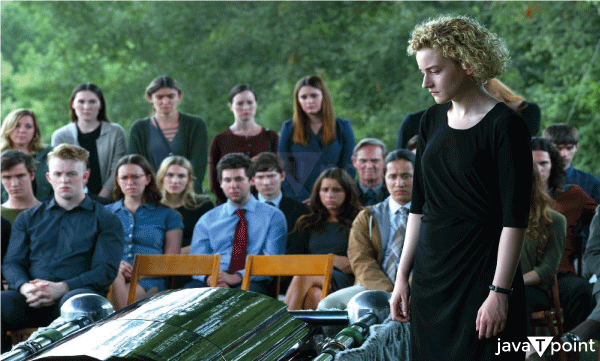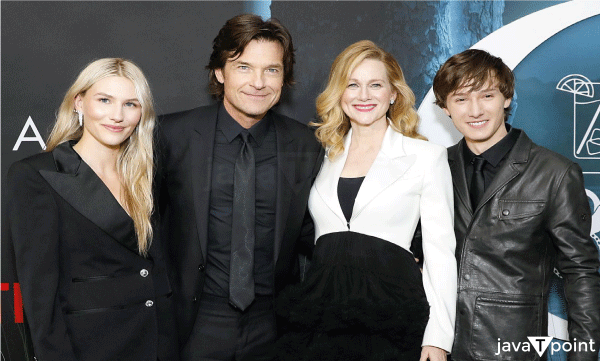Ozark ReviewWhen Ozark received some doubt and even some distrust when it first showed, many TV journalists were conflicted about the most stylish Netflix drama, despite receiving favorable reviews. The fact that the program was binge-worthy (Several episodes may be viewed back-to-back to keep a viewer engaged.) was well understood; back then, various streaming providers chased it with enthusiasm. It was, however, equally rapidly criticized for being "tired," "phony," and "taking itself suffocatingly seriously." 
The fact that another popular program loomed huge over Ozark, provoking comparisons that Ozark would never be able to equal, did not help the situation. Naturally, that program is Breaking Bad, the high point of the decent guy-turned-drug master genre. Knowing their similarities, putting them together seemed unavoidable. After all, Marty (Jason Bateman) appeared to be the show's main character in earlier episodes of Ozark. We initially hear his voice waxing lyrical about how "money is, at its basic components, that measure of a man's choices." But his choices were nothing short of disastrous when we first saw him. Marty strikes a deal: He'll assist the cartels in laundering millions of money in return for his life, saving him from being shot in the head by their enraged clients. He does this by relocating his family to a remote area of Missouri where he believes it would be simpler to carry out his criminal operations covertly, along with his wife Wendy (Laura Linney) and two children, Charlotte (Sofia Hublitz) and Jonah (Skylar Gaertner). Two middle-class men are attempting to support their families in Ozark and Breaking Bad. They were drawn into the realm of drug dealing by circumstance. These bland, mild-mannered suburbanites commit terrible atrocities. Ozark seemed to be the less brilliant younger sibling eclipsed by the more accomplished, profound, and gifted elderly heir. Ozark could never match the ambition of Breaking Bad, not even at its peak. However, it did not prevent it from becoming a Netflix success. The program has a lot of drawbacks. In a highly literal way, the first two seasons were depressing, tedious, and dismal. It seemed like a humorless award-baiting attempt, constantly bathed in a blue-gray filter that diminished the region's attractiveness. The writing could have been more organized and varied. The plot twist resulted from the show's fondness for making simple tasks into life-threatening situations that needed Marty, Wendy, or their protege turned foil, Ruth (Julia Garner), to renegotiate some unclear agreement. However, even the dullest areas of Ozark came to life because of the performances. Bateman and Linney's great performances make this disgusting couple tolerable. The Byrdes lose sympathy during its four seasons. The bland, mild-mannered accountant initially conjures up images of even-keeled naivete, but as the death toll increases, he emerges as a terrifying character. Whatever sympathy we may have had for Wendy as her behavior rapidly eliminates a working parent who got the short end of the stick. Only with her approval could Marty have struck a deal with the devil. She leans in like a genuine cold-hearted Sheryl Sandberg supporter once she learns that her strategic skills outweigh those of her spouse. With each new episode, Wendy grows more and more powerful, chilling, and cunning while utilizing each bit of the benefit of the doubt given to educated white women. She is not the only female figure that surpasses Marty, who never fully realizes his antihero position. The idea that this was (just) about some discount Walter White is complicated by the women involved in hunting, researching, and frequently murdering in Ozark. 
The characters of Wendy, Clare Shaw (Katrina Lenk), Camila Elizondo (Ver�nica Falc�n), Helene Pierce (Janet McTeer), and Darlene Snell (Lisa Emery)all they aren't doing so because they are more kindhearted or morally upright than Marty, but instead because they stand in the way of his ambitions. They frequently get in his way because they are more eager than he is to take advantage of everything this world offers. Wendy is focused on the significant reward she expects from her journey through narco hell. Darlene vehemently maintained her financial independence. Camila was unrelenting in her pursuit of revenge, Helene battled valiantly to protect her kid, and Clare Shaw was unafraid to put her survival first. Marty responds to every critical situation with "aw, shucks" while burying himself in spreadsheets throughout this process. Ruth Langmore is the only person in this underworld with that kind of authority. Julia Garner gave the audience a compelling protagonist with yet another remarkable performance. Because her relationships with her family were honest, genuine, and vulnerable qualities that escaped the Byrdes, the feisty, strong-willed, smart-mouthed local wound up becoming the heart of the program; this notion was emphasized even more by her tragic love connection with Wendy's problematic brother Ben (Tom Pelphrey). Season 3's introduction of that plot line was the turning point Ozark required to move beyond the aimless exploitation of its early seasons. The program finally found its feet by being wholly authentic: exaggerated, dizzy, and reluctant to provide any atonement to its central couple. Although there were many deaths in earlier seasons, they weren't necessarily the result of innocent bystanders. Ben served as the primary victim of sacrifice to show just how far the Byrdes were prepared to go to live up to their socioeconomic goals. It also dispelled misconceptions we might have had about the Byrdes' dedication to their family, despite the widespread emphasis on family preservation in Ozark. Marty once told Del (Esai Morales), his first cartel contact, that his ethics are "to protect and provide for my family," but it defies being regarded as a genuine mindset. Furthermore, the Byrdes are hardly an exception in this regard. With a few notable exceptions, every upright citizen of Ozark is as bloodied from head to bottom as the Byrdes. The Navarros cartel, for instance, which is ruthless but also has a devoted family priest, front companies, and dapper-appearing nephews who are MBA students, is a clear example. However, it is doubtful to claim that they are to blame for more fatalities than the opioid crisis brought on by Shaw Medical, a different family business. The claim that they have caused more significant disruption than Senator Schafer, a guy eager to meddle with federal elections, is debatable. Legacy, loyalty, and dedication may serve as their justifications. The fact that they covertly order hits at fine dining is the one thing that sets them apart from the Langmores or the Snells. The Kansas City Mob was at least attempting to obtain union protections, so that's something. Ozark first provided the incorrect impression. It was justified to eventually give up on that idea and refocus on its absurdly negative outlook if its objective was to become the next Breaking Bad. It was not a tale about a family's decline in society. It was a tale about the already damaged system created to support the American middle-class family. In Ozark, family preservation and support justified every selfish, arrogant, and power-hungry position. The Byrdes could justify the violence they committed to preserve their respectable place in society, though, as long as they could keep making that to themselves like a mantra. It became evident during the presentation that their ambition to win overcame their need for safety. What was the win they kept to, exactly? They appear to be excellent parents since they have two lovely kids nearby. In the financial sense, wealth is not the same as essential stability. The comfort of a family-run business. A structure for maintaining their civic responsibilities. And this distinguishes Ozark from other programs that feature a criminal family at its core. Ultimately, Walter White saved Skylar and his kids before fading away, giving him peace of mind. The familial relationships in The Sopranos or The Americans humanize the characters. In Ozark, putting the family's needs first has changed our conception of good and wrong in a way that impacts society. By the conclusion of the series, the people in power, who are wealthy and yet accepted members of society, gained it from their parent's horrible behavior. Shaw Medical needs to move in the right direction. The Byrdes will get to play do-gooder owing to their foundation, while the Navarro cartel will continue to flourish, thanks in no little part to the FBI's dependency on the cash seizures it can obtain from them. The program was uncompromising in its criticism of the American Dream in this way. They changed it as a nightmare we created ourselves, one that only a select few would be ready to give up if they ever succeeded. Ruth, who had an opportunity to break away from the Langmore curse and become the poster child for social mobility, discovers that her good fortune is fleeting. People like her were not intended for the system. It was constructed for kids like Jonah, who would carry on the cycle of violence his family started and expand the financial dominance they have attained by using the bodies of others as building blocks. Although the Byrdes may have received their happy ending, viewers will have the disturbing understanding that this outcome only appeases the monsters we've witnessed on film. Rating: 4.6 Stars
Next TopicPaappan Review
|
 For Videos Join Our Youtube Channel: Join Now
For Videos Join Our Youtube Channel: Join Now
Feedback
- Send your Feedback to [email protected]
Help Others, Please Share









